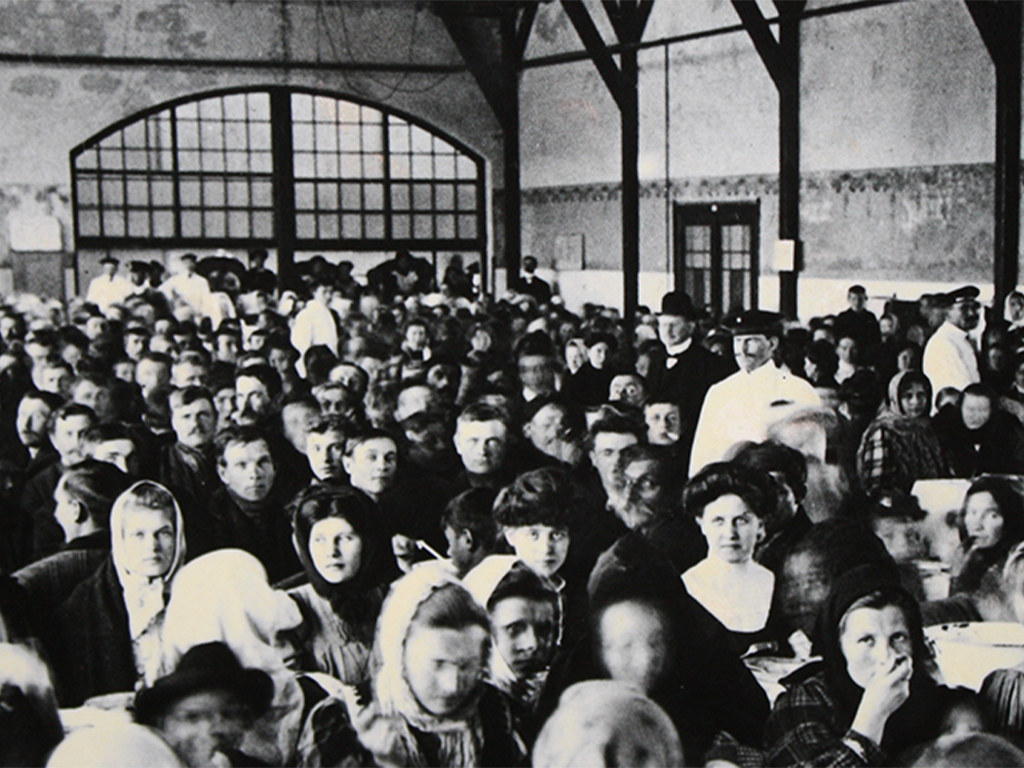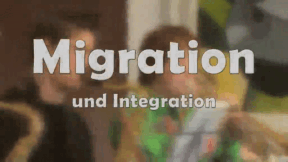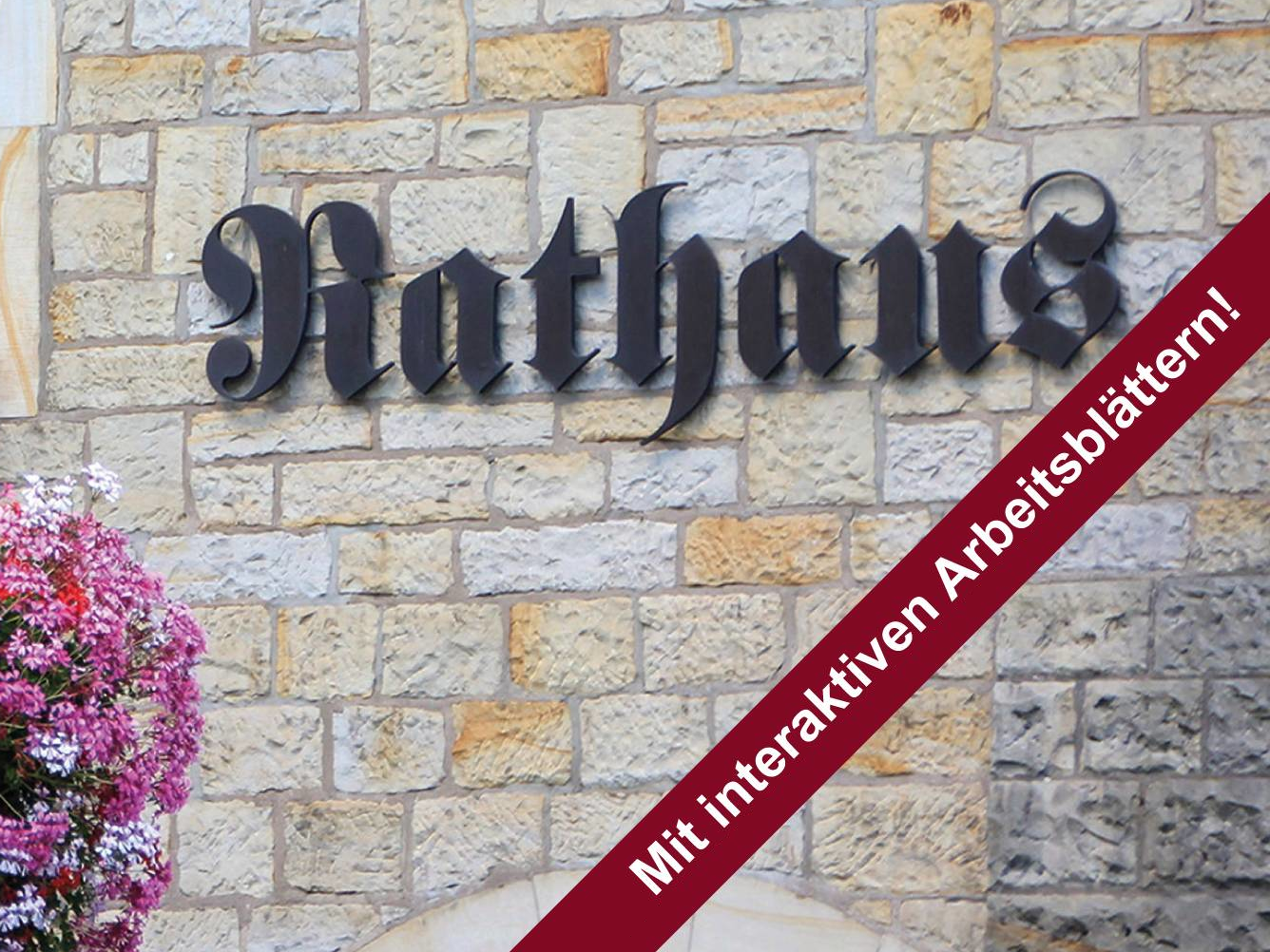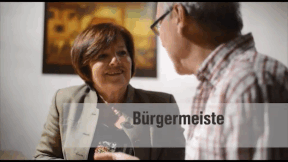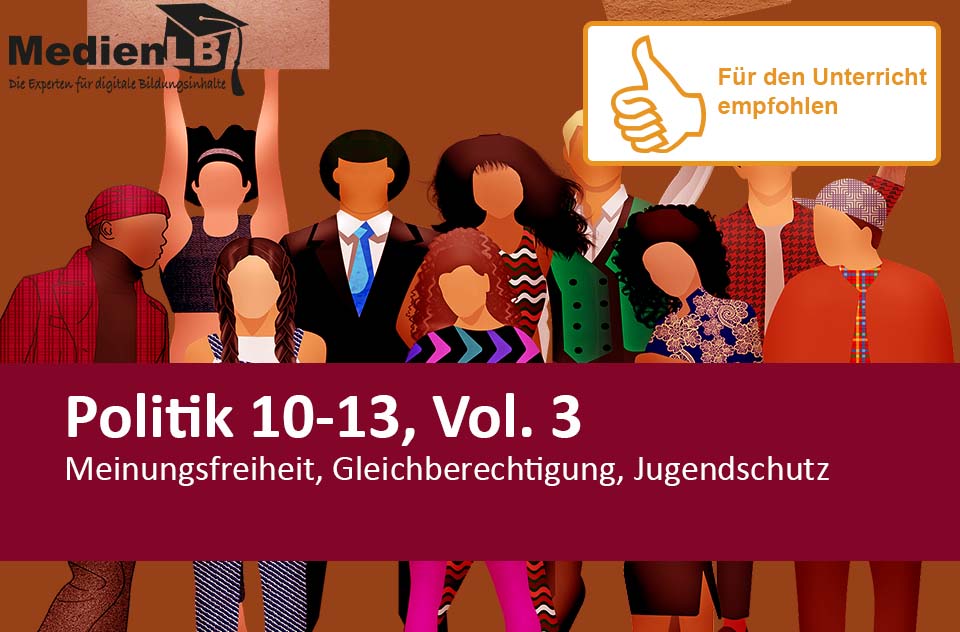

55501592
Meinungsfreiheit, Gleichberechtigung, Jugendschutz
Für den Unterrichtempfohlen
In unserem Arbeitsheft Politik 10-13, Vol. 3 – Meinungsfreiheit, Gleichberechtigung, Jugendschutz finden Sie 50 interaktive und didaktisch aufbereitete Aufgaben.
Das Medium bietet H5P-Aufgaben an, die ohne zusätzliche Software verwendbar sind. Das Medium enthält interaktive Videos und 50 H5P-Aufgaben zu den Themen Meinungsfreiheit, Gleichberechtigung und Jugendschutz.
Durch interaktive Aufgabentypen wird das audiovisuelle und interaktive Lernen einfach.
Lernen macht jetzt Spaß!

Included Tasks
- 1. Entwicklung der Menschenrechte - Zeitleiste
- 2. Demokratie wird erkämpft - Interaktives Video
- 3. Menschenrechte - Finde die Wörter!
- 4. Deutschland nach dem Krieg - Interaktives Video
- 5. Mehr Demokratie wagen - Interaktives Video
- 6. Zwei deutsche Staaten - Interaktives Video
- 7. Grundrechte im Grundgesetz - Interaktive Aufgabe
- 8. Menschen- und Bürgerrechte - Interaktive Aufgabe
- 9. Menschen- oder Bürgerrecht? - Interaktive Aufgabe
- 10. Der Artikel 5 des Grundgesetzes - Interaktive Aufgabe
- 11. Meinungsfreiheit - Interaktives Video
- 12. Meinungsfreiheit - ein Menschenrecht - Interaktives Video
- 13. Pressefreiheit - Interaktives Video
- 14. Pressefreiheit - Bildzuordnung
- 15. Pressefreiheit in Europa - Interaktives Video
- 16. Rundfunk - Interaktives Video
- 17. Schutz im Internet - Interaktives Video
- 18. Neue Medien - Interaktives Video
- 19. Meinungsvielfalt - Interaktive Aufgaben
- 20. Veränderung der Öffentlichkeit - Interaktives Video
- 21. Ich selbst; die Datenschleuder - Interaktives Video
- 22. Grenzen der Meinungsfreiheit - Interaktives Video
- 23. Begrenzungen der Meinungsfreiheit - Interaktive Aufgabe
- 24. Meinung oder Tatsache - Interaktive Aufgabe
- 25. Aktive und Passive Meinungsfreiheit - Interaktive Aufgabe
- 26. Zensur - Interaktives Video
- 27. Meinungsfreiheit in Gefahr - Interaktive Aufgabe
- 28. Gewaltfreie Erziehung - Interaktives Video
- 29. Recht auf Schulbildung - Interaktives Video
- 30. Schulpflicht - Interaktives Video
- 31. Jugendschutz - Interaktives Video
- 32. Pflicht zur Mithilfe im Haushalt - Interaktives Video
- 33. Alkohol und Zigaretten - Interaktives Video
- 34. Ausweispflicht - Interaktives Video
- 35. Schülerjobs - Interaktives Video
- 36. Motorisiert fahren - Interaktives Video
- 37. Strafmündigkeit - Interaktives Video
- 38. Eltern haften für ihre Kinder? - Interaktives Video
- 39. Fürsorge- und Aufsichtspflicht der Eltern - Interaktives Video
- 40. Aufenthaltsbestimmungsrecht - Interaktives Video
- 41. Religionsfreiheit - Interaktives Video
- 42. Gleichberechtigung - Interaktives Video
- 43. Gleichberechtigung. Seit wann? - Interaktive Aufgabe
- 44. Rolle der Frau in den 50ern und 60ern - Interaktives Video
- 45. Rolle der Frau in den 70er und 80er Jahren - Interaktives Video
- 46. Drei Generationen Frauen - Interaktives Video
- 47. Feminismus und Emanzipation - Interaktives Video
- 48. Frauen in Bildung und Beruf - Interaktives Video
- 49. Familie und Ehe - Interaktives Video
- 50. Gefährdungen der Demokratie - Interaktives Video
Curriculum-centred and oriented towards educational standards
Matching
Capitalism
Capitalism is a global economic and social order, in which the means of production such as, for instance, buildings, farmland or technical facilities are in private ownership, and the control of economic activities is effected by the market.
Migration
Migration and integration are central topics of future relevance in politics as well as in the public mind. Germany has long been a country of immigration. This can constantly be seen in everyday life: in the playground, in the underground, in the office or in the schoolyard. At school, in particular, this immigration society is being lived and experienced every day. Here, the groundwork for the future of our society is also being laid. In order to be able to explore the topic first-hand we have visited a school in Nuremberg with a large amount of pupils having a migration background. In project groups, the pupils of the 11th form of the Pirckheimer Gymnasium have already been investigating in depth the topics of migration and integration. Their assessments of the subject area were recorded and integrated into the overall context. The DVD is divided into substantial chapters on forms, causes and consequences of migration, on the history of migration in Germany, on political and legal framework conditions and on integration as a challenge and an opportunity. In the accompanying material, tasks providing further interest and insight are available that have been adapted to the content of the film.
Mayor(ess)
Gauting is a municipality southwest of the city of Munich in Bavaria. About 20,000 people live in the municipality. But who actually ensures that such a system works? Who determines how and what is built? Who will ensure that traffic is regulated for all? That there are traffic lights, that pedestrians have their rights? Who makes sure that enough playgrounds are built and that there are schools for the children of the community to go to? Who leads the administration of such a municipality which is needed so that everything we take for granted in everyday life works smoothly? A mayor or mayoress takes care of all these activities. In Gauting, this is Brigitte Servatius. Today we want to visit the mayoress in the town hall with class 4c of the primary school Gauting and ask what a mayor actually does.






